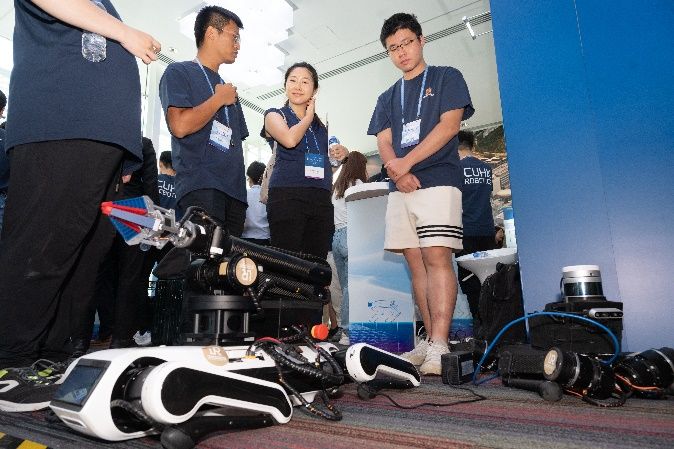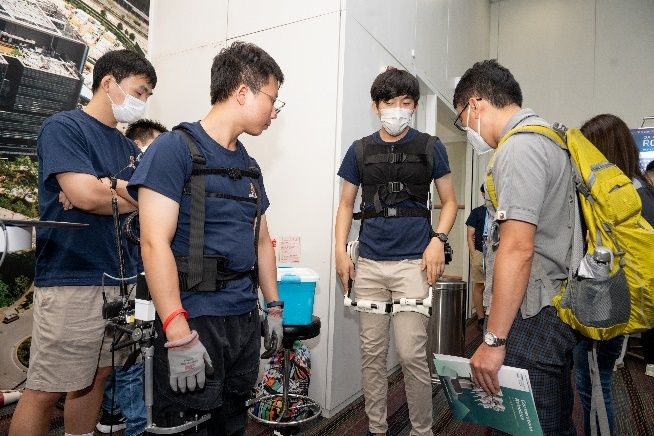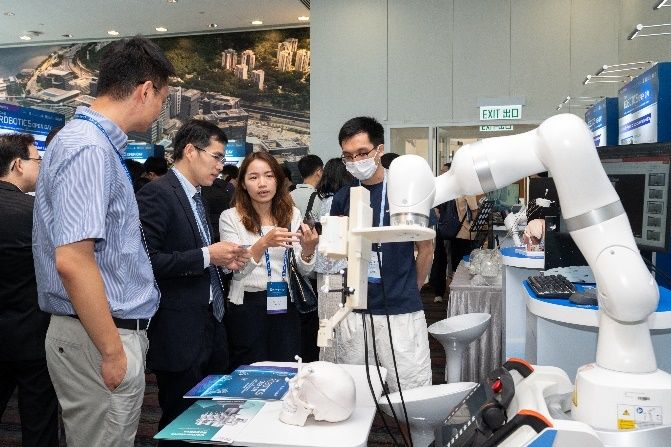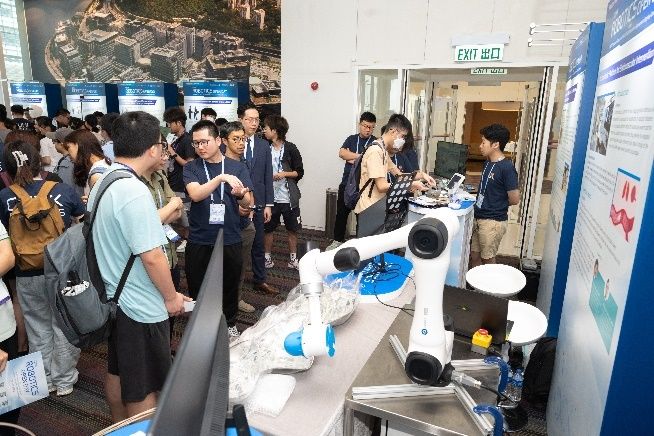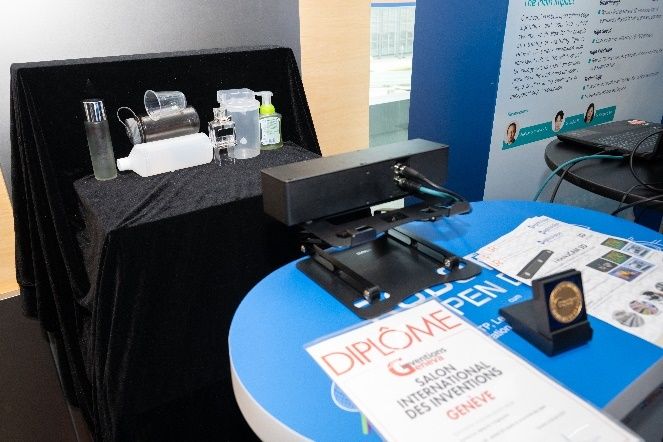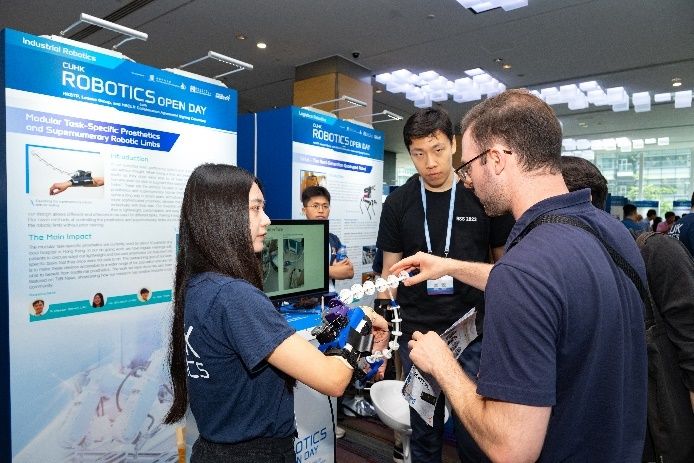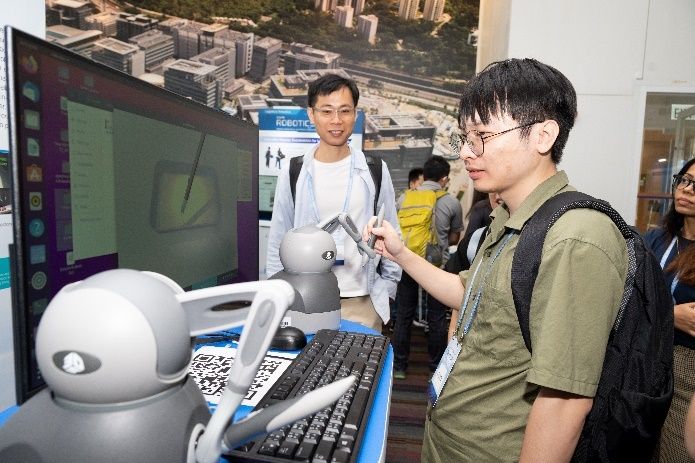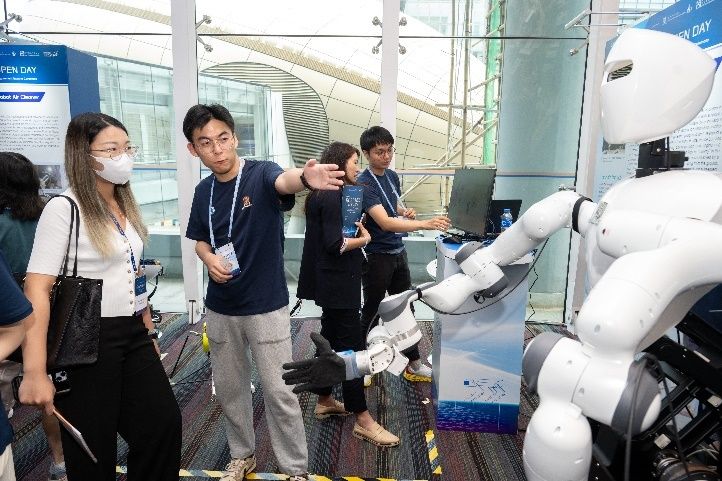The Chinese University of Hong Kong (CUHK)’s T Stone Robotics Institute (CURI) joined hands with Hong Kong Science and Technology Park Corporation (HKSTP) to organise the CUHK Robotics Open Day at HKSTP on 27 July 2023, showcasing its leading innovations to the public. Robotics is an interdisciplinary engineering subject with numerous applications in manufacturing industries, services, health care, space, etc. Robotics technology is widely considered as the technology, next to the Internet technology, that can change the world and human life. As one of the strategic initiatives of the University, CURI strives to develop cutting-edge technologies in robotics and to become a global leader in the special robotics areas that fit its strengths and the local needs. The Robotics Open Day is an amazing opportunity for CUHK to showcase and celebrate its incredible work. More than 30 cutting-edge robotics innovations had been showcased during the open day. Major projects include the UAS and AI Technologies for Autonomous Built Asset Inspection and Management developed by Professor Chen Benmei, Professor in the Department of Mechanical and Automation Engineering; the Microrobotic Platform for Endovascular Intervention, which uses a nanorobot swarm and a magnetic actuation system, developed by Professor Zhang Li, Professor in the Department of Mechanical and Automation Engineering; Quadrupedal Robots: A New Last-mile Delivery Solution, featuring the robot Sirius, developed by Professor Liu Yunhui, Director of CURI and HKCLR, for efficient and stable delivery of packages; and TransCam 3D: World’s First 3D Camera with the Ability to Reconstruct Transparent Objects, developed by DepthVision Limited. Also at the exhibition are novel projects from the CUHK Robotics Team, start-up companies and InnoHK. |
Showcases of robotics innovations:
Sirius - The Next-Generation Quadruped Robot Sirius, the cutting-edge medium-sized quadruped robot, is designed to revolutionise the logistics and related industries. Sirius offers a mobile platform with unparalleled terrain adaptability and ability to reach significantly farther distance than traditional wheeled robots.
Wearable Robotic Exoskeleton for Load Transportation Industrial back-support exoskeletons help workers in reducing the chance of developing low back pain This is achieved by providing an interaction torque on the lumbosacral joint and hip joints, assisting the user in lowering and lifting objects. In this project, two active back support exoskeletons with two different actuation systems are developed to evaluate the assistance effectiveness of different exoskeleton actuation configurations for optimal design of the active back-support exoskeletons.
A Semi-autonomous Stereotactic Brain Biopsy Robotic System with Enhanced Safety This semi-autonomous stereotactic brain biopsy robotic system is proposed for surgeon workload reduction and patient safety enhancement. This system includes two novel components: a brain biopsy robotic module and a constrained cannula with tissue blocker.
Microrobotic Platform for Endovascular Intervention A microrobotic platform for the image-guided endovascular intervention is developed for treatments of vascular diseases. The microrobotic platform utilises the nanorobots swarm and the magnetic actuation system for active drug delivery to a targeted region inside the vessels, delivering high dose of drugs to the region locally with lower overall required drug dosage.
TransCam 3D: World’s First 3D Camera with the Ability to Reconstruct Transparent Objects TransCam 3D is the first and only 3D Camera capable of acquiring 3D shaped transparent objects with high accuracy, high speed, and a large field of view. It is the world’s first achievement in 3D reconstruction of transparent objects in high speed and high precision.
Modular Task-Specific Prosthetics and Supernumerary Robotic Limbs This invention introduces a new potential method that is lightweight, customisable, and easy to use. The task-specific nature of this design allows different end effectors to be used for different tasks, making it easy to adapt to by patients of all ages. The novel methods of controlling the prosthetics and supernumerary limbs are intuitive, allowing users to freely control the robotic limb without prior training.
Interactive Surgical Embodied AI Simulator (SurRoL) SurRoL is a simulation platform dedicated to surgical embodied intelligence with strong focus on human interaction, learning algorithm support, and extendable infrastructure design, with which we hope to pave the way for future research surgical embodied intelligence and its downstream application. SurRoL is the first embodied AI simulator dedicated for surgical robot learning and its downstream application (such as surgical training and surgical task automation). It highlights human interaction, learning algorithm support, and extendable infrastructure design.
Autonomous Humanoid Robots for Kitchen Tasks Domestic service robots have been developed considerably in recent years, while the creation of a robot chef in the semi-structured kitchen environment remains a grand challenge. This project focuses on humanoid robot manipulation for kitchen tasks, which is a bimanual skill learning and deformable object manipulation problem. |

